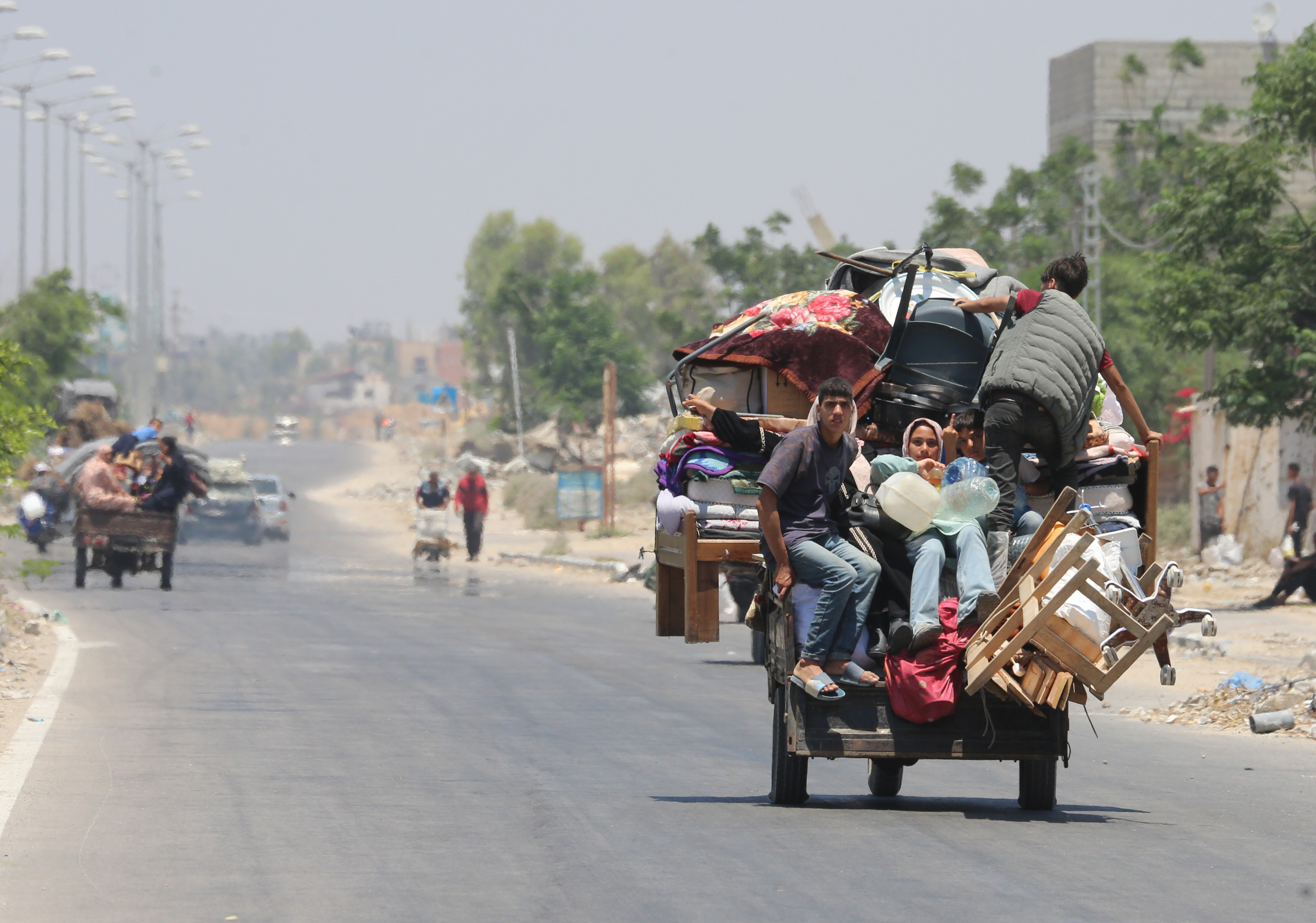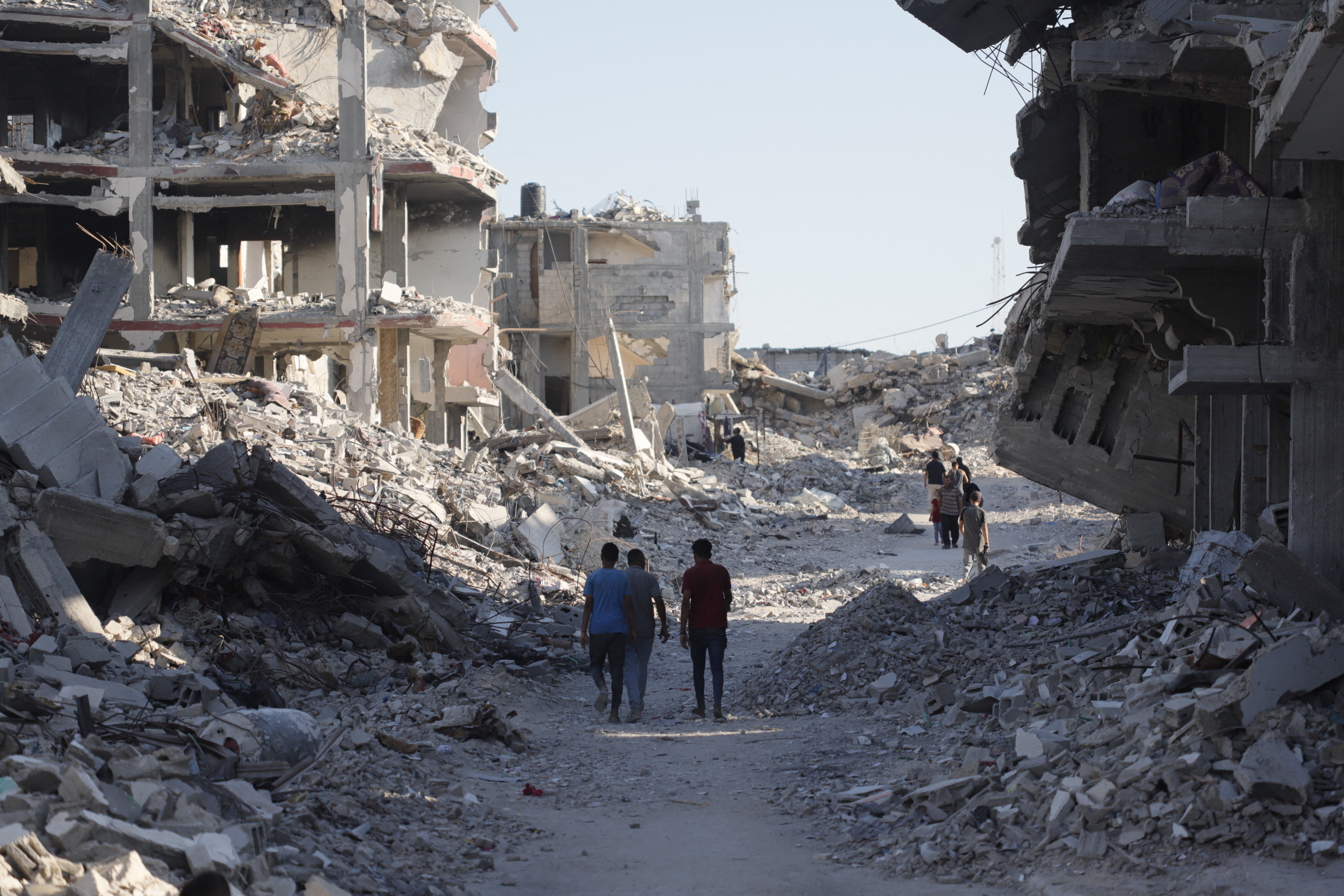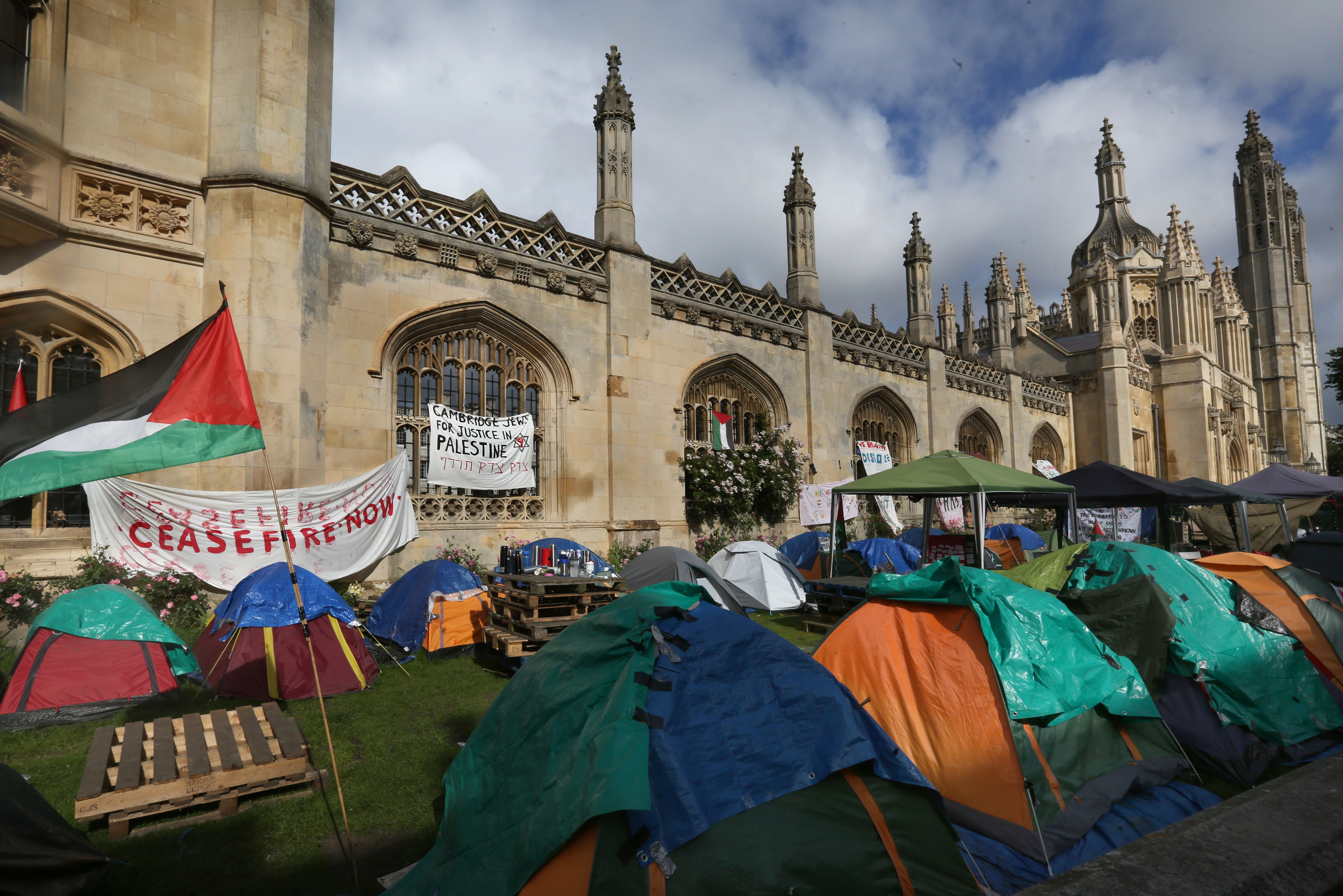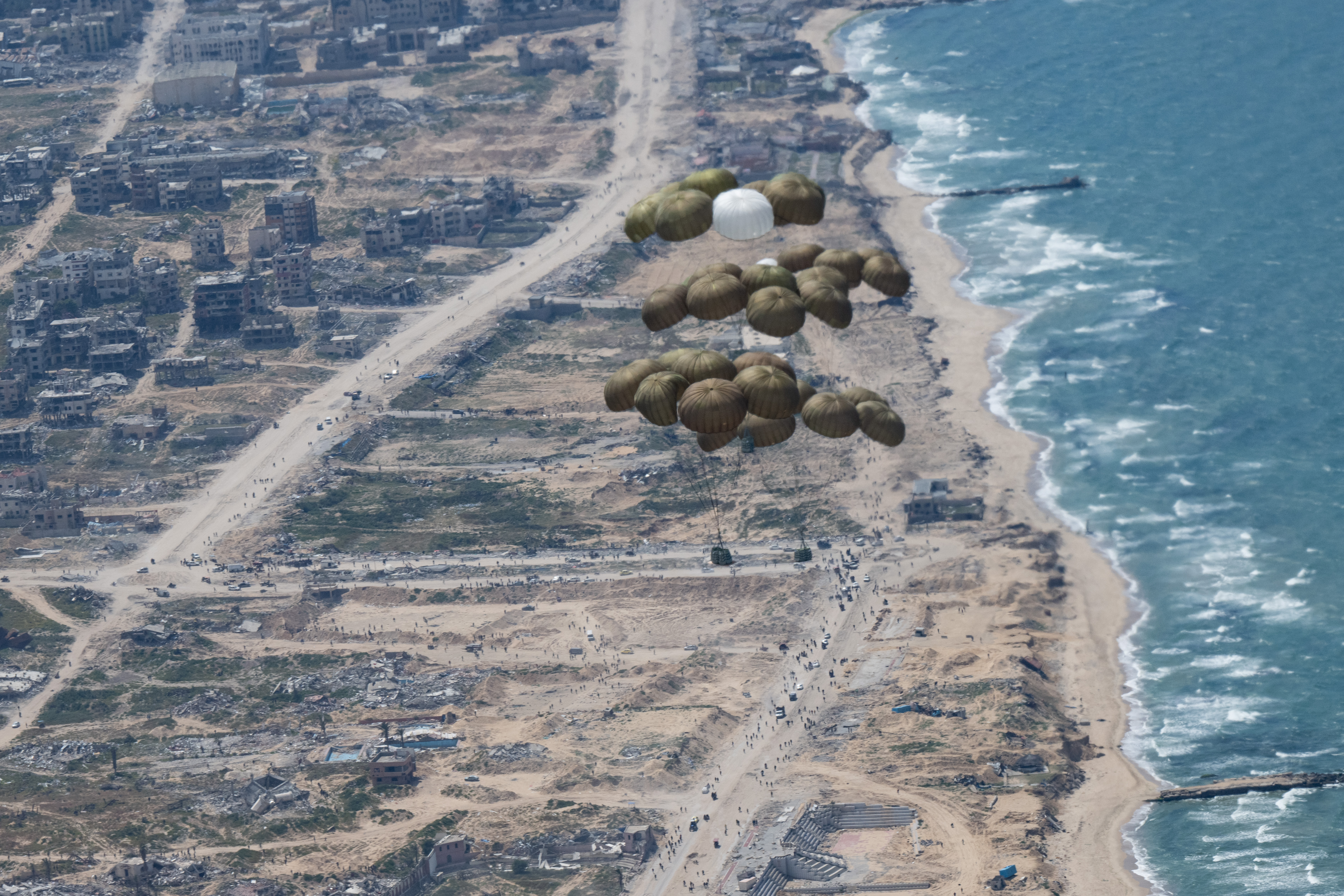History and the war on Gaza

In the 250 days since October 7, 2023, we have witnessed seemingly endless scenes of horror. Do these shocking events represent a rupture and are they in fact unprecedented? Certainly, the images we have all seen of atrocities and unbearable devastation, and the intensity of the global response on university campuses and elsewhere, are extraordinary. We do seem to be in a new phase, where violence, occupation, and colonization are intensifying, where international law is further ignored, and where long-fixed tectonic plates are slowly moving.
Cataclysmic new phase
While much has changed, these events can only be comprehended as a cataclysmic new phase in a war that has lasted for generations. This is the thesis of my book The Hundred Years War on Palestine: that events in Palestine since 1917 resulted from a long war waged on the indigenous Palestinian population by the Zionist movement and its great power patrons. This was both a national movement and a self-proclaimed settler colonial movement, which aimed to replace the Palestinian people in their ancestral homeland. Throughout this long war, the Palestinians have fiercely resisted the usurpation of their country. This framework explains not only events since October 7, but also the history of the past century and more, without which these events are in fact incomprehensible.
Seen in this light, it is clear that this is not an age-old struggle between Arabs and Jews that has been underway since time immemorial, and it is not simply a conflict between two peoples. It is a product of the irruption of imperialism into the Middle East and of the rise of modern nation-state nationalisms, both Arab and Jewish; it is a product of the violent European settler-colonial methods to “transform Palestine into the land of Israel,” in the words of Ze’ev Jabotinsky, one of the founders of modern political Zionism; and it is a product of Palestinian resistance to these methods.
“It is clear that this is not an age-old struggle between Arabs and Jews, and it is not simply a conflict between two peoples. It is a product of the irruption of imperialism into the Middle East and of the rise of modern nation-state nationalisms, both Arab and Jewish”
Moreover, this war has never been one just between Zionism and Israel on one side and the Palestinians on the other, occasionally supported by Arab and other actors. It has always involved the massive intervention of the greatest powers of the age on the side of the Zionist movement and Israel. These powers were never neutral or honest brokers, but were always active participants in this war alongside Israel. In this war between colonizer and colonized, oppressor and oppressed, there has been no equivalence between the two sides, but instead a vast imbalance in favor of Zionism and Israel.
This thesis has been starkly confirmed by the disproportionate levels of death, destruction and displacement since October 7: the ratio of Palestinians to Israelis killed so far is about 25-1. It is further reinforced by the overwhelming level of US and Western European political, diplomatic and military support for Israel, in contrast with the relatively limited military and financial backing for the Palestinians by Iran and several non-state actors.

No departure, but long-fixed tectonic plates are slowly moving
However dramatic they have been, the events of the past nearly nine months are not unique and do not stand outside of history. We can only properly understand them within the context of the century-long war waged on Palestine, notwithstanding efforts by Israel to deny the relevance of context. The actions of Hamas and Israel since October 7, far from representing a departure, are consistent with decades of Israeli ethnic cleansing, military occupation, and theft of Palestinian land, with years of the siege of the Gaza Strip, and with an often violent Palestinian response to these actions.
This episode in the long war on Palestine has clearly had a profound traumatic impact on both Palestinians and Israelis. An immense degree of harm has been done to the Palestinian and Israeli civilian populations. The Palestinian toll of over 35,000 killed, together with perhaps 10,000 missing and presumed dead, the overwhelming majority of them civilians, is the highest in any phase of this century-long war. In the eight and a half months since October 7, the Palestinians killed and wounded – roughly 130,000 people – amount to over 5 per cent of the Gaza Strip’s population of 2.3 million. Israel’s civilian death toll of more than 800 is the highest since the 1948 war. Nearly 700 Israeli soldiers, police and security personnel have been killed so far. Over 250 Israeli civilians, soldiers and foreign nationals were taken captive, with perhaps 100 still held hostage.
“This episode in the long war on Palestine has clearly had a profound traumatic impact on both Palestinians and Israelis. An immense degree of harm has been done to the Palestinian and Israeli civilian populations.”
In addition, over the entire course of this long war, never have such large numbers of Palestinians and Israelis been driven from their homes. The numbers of those ethnically cleansed from Palestine in 1948, and from the West Bank and Gaza Strip after the 1967 occupation, were dwarfed by the over 1.7 million Gazans whom Israel has displaced since October 7. Meanwhile, as many as 200,000 Israelis have been displaced from settlements and towns in areas bordering the Gaza Strip and Lebanon.
Traumatic shocks
These traumatic shocks have had a huge impact on both societies. In Israel, the violence of October 7, with the gruesome results live-streamed via social media and repeatedly played on television, has had a visceral impact on the entire country. This attack shattered the sense of security that Israel supposedly provided for its citizens, reinforcing a preexisting sense of perpetual victimhood that evokes historical memories of violence and persecution. It almost seems as if in the Israeli public consciousness time stood still on October 7, 2023, as the searing effect of this collective trauma plays on a loop.
“It almost seems as if in the Israeli public consciousness time stood still on October 7, 2023, as the searing effect of this collective trauma plays on a loop.”
Palestinians everywhere have been traumatized by the unending stream of images of Gaza’s devastation, the scores of families completely wiped out by Israel’s AI targeting, and the starvation and disease intentionally caused by crippling Israeli restrictions on the transit of water, food, medicine, fuel and electricity into the Gaza Strip. Looking at the moonscape that Israeli has turned Gaza into, Palestinians have been shocked by the murder of thousands of civilians and the vast destruction of infrastructure, in what has been described as “one of the most intense civilian punishment campaigns in history”. Beyond grappling with these hideous realities for months, Palestinians are haunted by memories of the 1948 Nakba (Arab: “catastrophe”), and by the question of when and whether this war will end, and how Gazans can ever have a normal life again.
Collapse of Israel’s security doctrine
These shocking events have reverberated around the world, as the atrocities committed against Israelis, and the far more extensive ones Israel has inflicted on Gazans, have been viewed in real time on mainstream, alternative, and social media. This is the first time a generation of young people across the globe have watched such images of carnage for months on their phones. Palestine has become a central cause for activists young and old, for churches and trade unions. At the same time, it has divided some families along generational lines, shattering the complacent consensus among Western liberals that in spite of its flaws, Israel is a force for good. This process has accelerated during this war, inflicting a mounting toll on Israel’s increasingly tarnished image, and further diminishing its already impaired legitimacy globally.
The surprise attack of October 7 and the cascading battlefield failures that followed exposed the weaknesses of Israeli military planning, intelligence, and its vaunted surveillance technology. This was one of the worst defeats in Israel’s military history, resulting in the killing and capture of more than 1500 Israeli troops and civilians in a matter of hours, and the overrunning of multiple border settlements, some of which were not retaken until October 10, 2023.
Shaken by this catastrophic defeat, the Israeli government has indicated that it will refuse to withdraw its troops fully from Gaza, establishing an extended reoccupation. Given the history of the Gaza Strip since 1948 as the most intense site of resistance to Israel’s dispossession and rule over Palestinians, this is a recipe for an unending new phase of this conflict.
“This was one of the worst defeats in Israel’s military history, resulting in the killing and capture of more than 1500 Israeli troops and civilians in a matter of hours, and the overrunning of multiple border settlements, some of which were not retaken until October 10, 2023.”
The military fiasco of October 7 also represented the temporary collapse of Israel’s security doctrine. This is often misnamed “deterrence,” but it is in fact derived from the aggressive approach first taught to the founders of Israel’s armed forces, chosen members of Zionist militias who were trained in the late 1930s by veteran British colonial counter-insurgency experts, like Orde Wingate and Sir Charles Tegart, many of whom honed their trade in Ireland and India years before. The doctrine holds that by attacking preemptively with overwhelming force, terrorizing civilian populations considered supportive of insurgents, the enemy can be decisively defeated, permanently intimidated, and forced to accept the terms of the colonizer. In the past, in Gaza, this doctrine – described by Israeli analysts as “mowing the lawn” – involved periodically killing large numbers of people to force them to accept a status quo of siege and blockade.
However, while the events of October 7 should have exposed the bankruptcy of a force-based approach to an essentially political problem, the Israeli leadership has clearly learned nothing. Instead, it has doubled down on previous practices, in keeping with the well-known Israeli adage, “if force does not work, use more force.” Israel’s leaders seem to have forgotten Clausewitz’s dictum that war is a continuation of politics by other means. Driven by a desire for revenge for a humiliating military defeat, they brandish the empty slogan of “complete victory” and the notion of restoring an aggressive posture of “deterrence,” which is manifestly futile because it failed to deter attacks in the past.
“While the events of October 7 should have exposed the bankruptcy of a force-based approach to an essentially political problem, the Israeli leadership has clearly learned nothing.”
There is ample evidence that the Israeli government originally desired to exploit the opportunity provided by the war to carry out further ethnic cleansing of Palestinians, via their expulsion to Egypt or Jordan, and that, disgracefully, the US tried to persuade both countries to go along with this plan, which they categorically refused to do. The strong settler faction within the government still advocates doing this, and possibly even hopes to resettle the Gaza Strip.
Instead of defining a precise political aim, the Israeli government has declared that its goal is the complete destruction of Hamas, a political-military-ideological entity with branches throughout Palestine and the Palestinian diaspora – a manifestly impossible mission. It may be feasible for Israel to defeat decisively Hamas’s military forces in the Gaza Strip. However, if Hamas manages to retain even a fraction of its military capacities after many months of fighting, it can claim a Pyrrhic victory. As Henry Kissinger once wrote: “the guerrilla wins if he does not lose. The conventional army loses if it does not win.” Whatever the military outcome, Hamas will not be destroyed as a political force and an ideology.
Reliance on force
In light of the devastating impact on Israel of the October attack, and despite the savage toll of Israel’s response, Hamas’s philosophy of armed resistance is unlikely to disappear as long as there is no prospect of an end to military occupation, colonization, and oppression of the Palestinian people, and as long as there is no political horizon promising true Palestinian self-determination and equality.
If Israeli prospects are unclear, the postwar political horizon for the Palestinians is also murky. In purely military terms, the scale and scope of Hamas’s October attack was unprecedented. Still, referring again to Clausewitz, it is hard to discern Hamas’s political objectives. At various times in the past, Hamas has proclaimed its willingness to accept a Palestinian state alongside Israel, as in its 2017 statement of principles, which considered “the establishment of a fully sovereign and independent Palestinian state with Jerusalem as its capital along the lines of June 4, 1967, with the return of the refugees and the displaced to their homes from which they were expelled, to be a formula of national consensus.” A Hamas leader repeated this offer recently, together with an offer to lay down its arms.
In the same 2017 document, however, Hamas called for the “full and complete liberation of Palestine, from the river to the sea,” and has consistently refused to accept Israel’s legitimacy or to renounce violence. Both tendencies have been present in contradictory statements made by Hamas leaders since October, and in previous and current efforts to join the PLO and unite with other Palestinian political forces, or alternatively to treat them as rivals to be superseded.
"Hamas called for the ‘full and complete liberation of Palestine, from the river to the sea,’ and has consistently refused to accept Israel’s legitimacy or to renounce violence.”
Both of these tendencies have been reinforced among different segments of the Palestinian people since October 7, with armed resistance finding new advocates, and others cautiously hoping for a breakthrough in the direction of a Palestinian state – although the prospects for a genuine independent state are dim, as I will explain.
One constant in this hundred years’ war that is relevant in the context of discussion of a Palestinian state is that in the past Palestinians have frequently not been allowed to choose who represents them. Their preferences may again be unacceptable to the powers that be, whether Israel, Western states or their Arab clients, which are likely to attempt to impose their choice of who represents them.
If the Palestinians cannot agree on a unified, credible political voice representing a national consensus, and impose their choice of those who represent them, there is a great risk that crucial decisions about their future will be made by outside powers, ignoring their aspirations, as has often happened in the past.
Israel has presented its war on Gaza as being targeted exclusively at Hamas, claiming that it has scrupulously obeyed international humanitarian law, using “proportional” and discriminate force, and that civilian deaths were unintentional “collateral damage” because Hamas used them as “human shields.” Western governments and media repeated these essentially false claims, although they are belied by the death of more than 35,000 civilians, including 13,000 children, the displacement of 1.7 million people , and the obviously intentional destruction of most of the Gaza Strip’s infrastructure through the targeting of hospitals, water purification and sewage plants, electrical, telephone and internet systems, schools, universities, mosques and churches.
After long months of war, the scale of this devastation and slaughter, and of the mass starvation caused by Israel, has broken through the fog of group-think perpetuated by Western governments and the mainstream media that parrot deceitful Israeli talking points. Most observers now correctly see this war as directed against Gaza’s population in a vengeance-driven form of collective punishment. The resulting outraged response to the resulting atrocities has been almost universal across the Arab world, and in most countries of the Global South.

Global outrage
Growing segments of American and European populations have responded similarly. This global outrage, however, has had little effect on the Biden administration’s policy of blanket support for Israel, beyond mild and patently insincere rhetorical reproaches. For most people the world over, massive American financing and deliveries of arms bypassing congressional safeguards, blanket diplomatic protection of Israel at the UN, rote repetition of Israeli talking points, and the utter callousness regarding Palestinian suffering of the Biden administration are seen as constituting active participation in the commission of war crimes.
Since October 7, the strong support of the Arab peoples for the Palestinians has exposed the willful ignorance of those who claimed that Palestine is not important to the Arabs, and that the issue of Palestine can be bypassed with little more than lip service. In fact, the Arab countries have witnessed months of the largest popular protest demonstrations in over a decade. The autocratic regimes that blight the region may eventually succeed in repressing their citizens’ sympathy for the Palestinians. Nevertheless, they will be obliged to take more carefully into account their peoples’ passionate sense of identification with Palestine.
Since October, another element has emerged: the unequal value that Western elites place on Israeli lives on the one hand and Arab lives on the other. This double standard has produced a toxic, repressive atmosphere in the spaces dominated by these elites in the United States and Europe, notably in the political arena and the media, and on university campuses. The resulting wave of congressional, cultural, and university witch-hunts has centered on accusations that advocacy of Palestinian freedom and critiques of Israeli policy or Zionism are somehow anti-Semitic.
This assertion accepts the contention that Israel and Zionism are coterminous with Judaism, while ignoring the prominent place of more progressive and younger Jews in supporting Palestinian rights and opposing the Israeli government’s actions. It is utterly absurd to claim that opposition to Zionism or Israeli settler colonialism is anti-Semitic in principle. If those who colonized Palestine were persecuted Scandinavian Christians, who saw themselves as on a divinely mandated mission to seize the country from its indigenous population, it would be ludicrous to claim that resistance to their efforts was “anti-Christian.”
“It is utterly absurd to claim that opposition to Zionism or Israeli settler colonialism is anti-Semitic in principle.”
The blatantly biased approach of the media and many politicians in favor of Israel is a double-edged sword: while it shores up the shrinking audience for Israel’s skewed portrayal of reality in Palestine, the inherent double standards are transparent to most of the world, especially younger people. Rather than getting their information from the offerings of the mainstream media, which present the news largely through an Israeli lens, these younger audiences have a varied range of sources, accessed mainly through alternative and social media, which offer ample images of the death, destruction and misery Israel inflicts on Gazans. They understand that a high degree of censorship of these realities is imposed by the biases of mainstream media, for which they have justifiable contempt.
In spite of a ferocious wave of repression of Palestinian advocacy in the public sphere, on campuses and elsewhere, the greater availability of a broader variety of information, especially among younger people, has begun to have a political effect in the United States, after the initial surge of sympathy for Israel in response to the Hamas attacks was supplanted by compassion for massacred and starved Palestinian civilians. There have consequently been significant shifts in American public opinion, with large majorities now opposing Israel’s war on Gaza.
However, since his election as a Senator in 1972, Joseph Biden has been wedded to the many myths about Israel and Palestine that are prevalent in American discourse. His administration has not reversed the many policies blatantly favoring Israel enacted by its predecessor, including downgrading the Palestinian issue while focusing on normalizing relations between Israel and Arab states. Biden and his team continued pressing hard for a Saudi-Israeli normalization deal aimed at aligning the most influential Arab state with Israel, further diminishing Palestinian prospects of achieving any of their national objectives.

Chimera of Saudi normalization
Although the chimera of a Saudi normalization deal collided forcefully with reality after October 7, the Biden administration never wavered in its aggressive promotion of the idea. It did so while undermining its Arab clients with unlimited support for Israel’s savaging of the Gaza Strip, which it has resolutely endorsed as “self-defense.” This support encompassed the categorical rejection of a permanent ceasefire and the emergency delivery of planeloads of ammunition and weapons, without which Israel’s military campaign would have been unsustainable.
“The Biden administration has not reversed the many policies blatantly favoring Israel enacted by its predecessor, including downgrading the Palestinian issue while focusing on normalizing relations between Israel and Arab states.”
By these actions, and by his constant echoing of Israeli rhetoric, Biden reinforced the sense that the United States was viscerally hostile to the Palestinians. Even when, months late, he finally asked that Israel end its mass starvation of Gazans – which it has still not done – this was in response not to images of emaciated Palestinian babies, but to the deaths of foreign aid workers.
Even the Biden administration’s call for a “two-state solution” rings hollow. There was no sign that the US would demand implementation of the essential prerequisites for a real two-state solution: these are a rapid and complete end to Israel’s 56-year military occupation and to its usurpation and colonization of Palestinian land, which has planted nearly 750,000 illegal settlers in the West Bank and East Jerusalem. Nor has the US indicated that it would accept the Palestinians democratically choosing their own representatives.
Without firm enforcement of these measures, a call for a “two state solution” has always been a cruel Orwellian hoax. Instead of Palestinian self-determination, statehood and sovereignty, it would maintain the status quo in Palestine under a different form, with an externally-controlled Quisling “Palestinian Authority” lacking jurisdiction or authority replaced by a Quisling “Palestinian state” similarly devoid of the sovereignty and independence attaching to a real state. It would be a travesty: a disjointed archipelago of Bantustans under the control of Israel, with financial and security supervision by the US and its European and Arab allies.
Looking back over the past eight and a half months – at the cruel slaughter of civilians, the millions of people made homeless, the mass famine and disease induced by Israel – it is clear that this marks a new abyss into which the struggle over Palestine has sunk. While this phase reflects the underlying lineaments of previous ones in this hundred years’ war, its intensity is unique, and it has created deep, new traumas. There is no end to this carnage in sight, and there seems to be no viable path towards a lasting, sustainable resolution in Palestine. Such a resolution can only be based on dismantling entrenched structures of supremacy and discrimination, and on justice, equal rights, and mutual recognition, processes that have begun in South Africa and Ireland, but are still far away in Palestine.
© Qantara.de 2024
Rashid Khalidi is a Palestinian-American historian of the Middle East and the Edward Said Professor of Modern Arab Studies at Columbia University. Khalidi took part in the Madrid Peace Conference in 1991. He has authored a number of books, including The Hundred Years' War on Palestine (2020) and Palestinian Identity: The Construction of Modern National Consciousness (1997).
